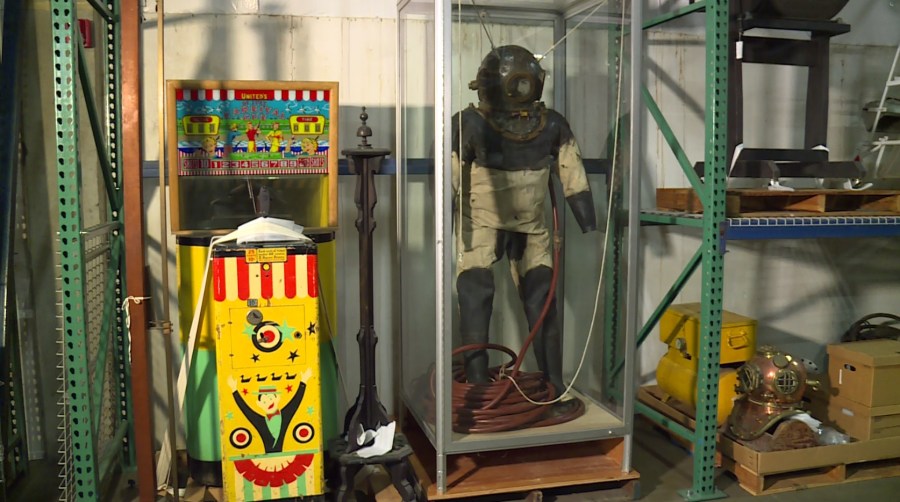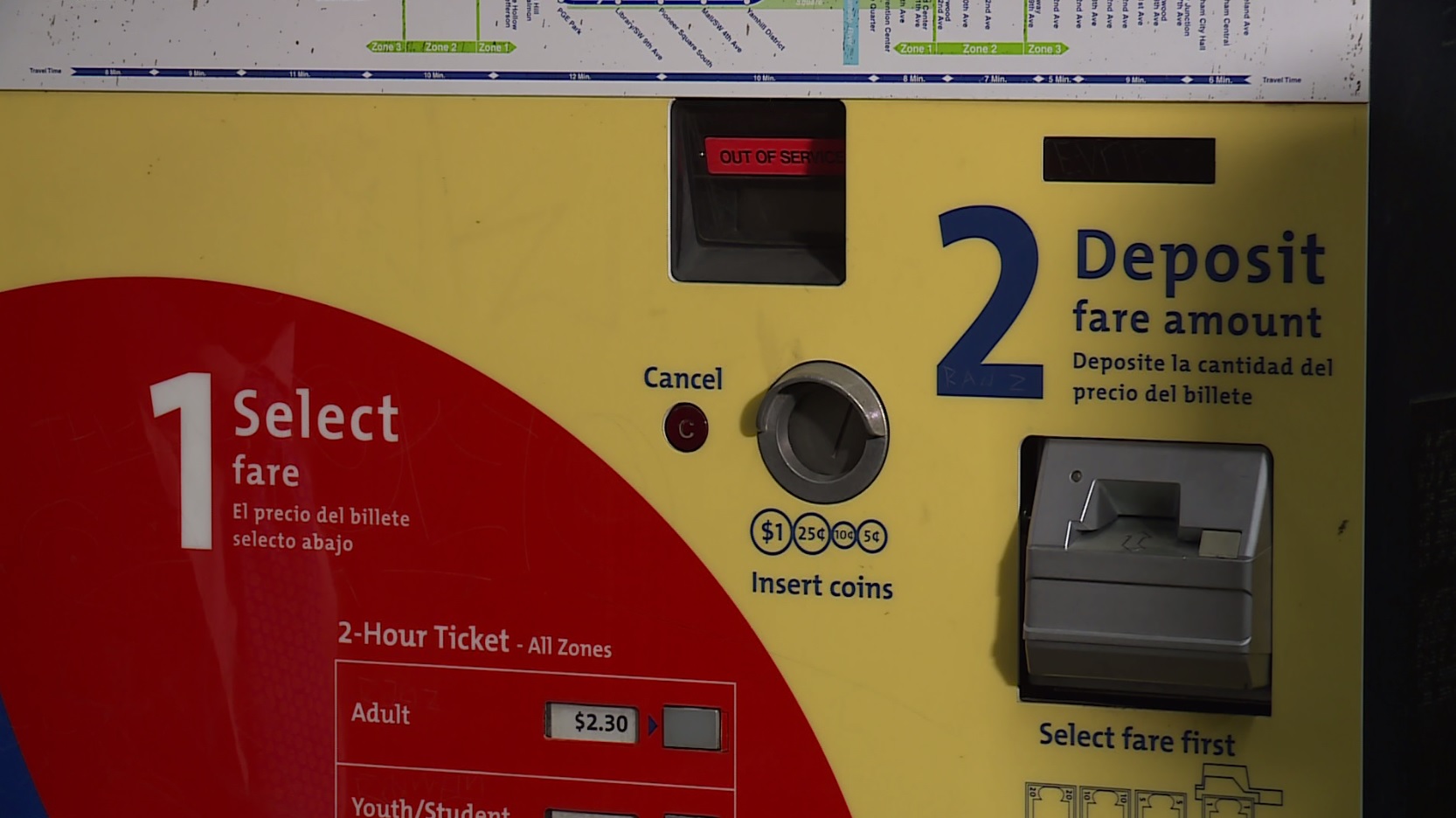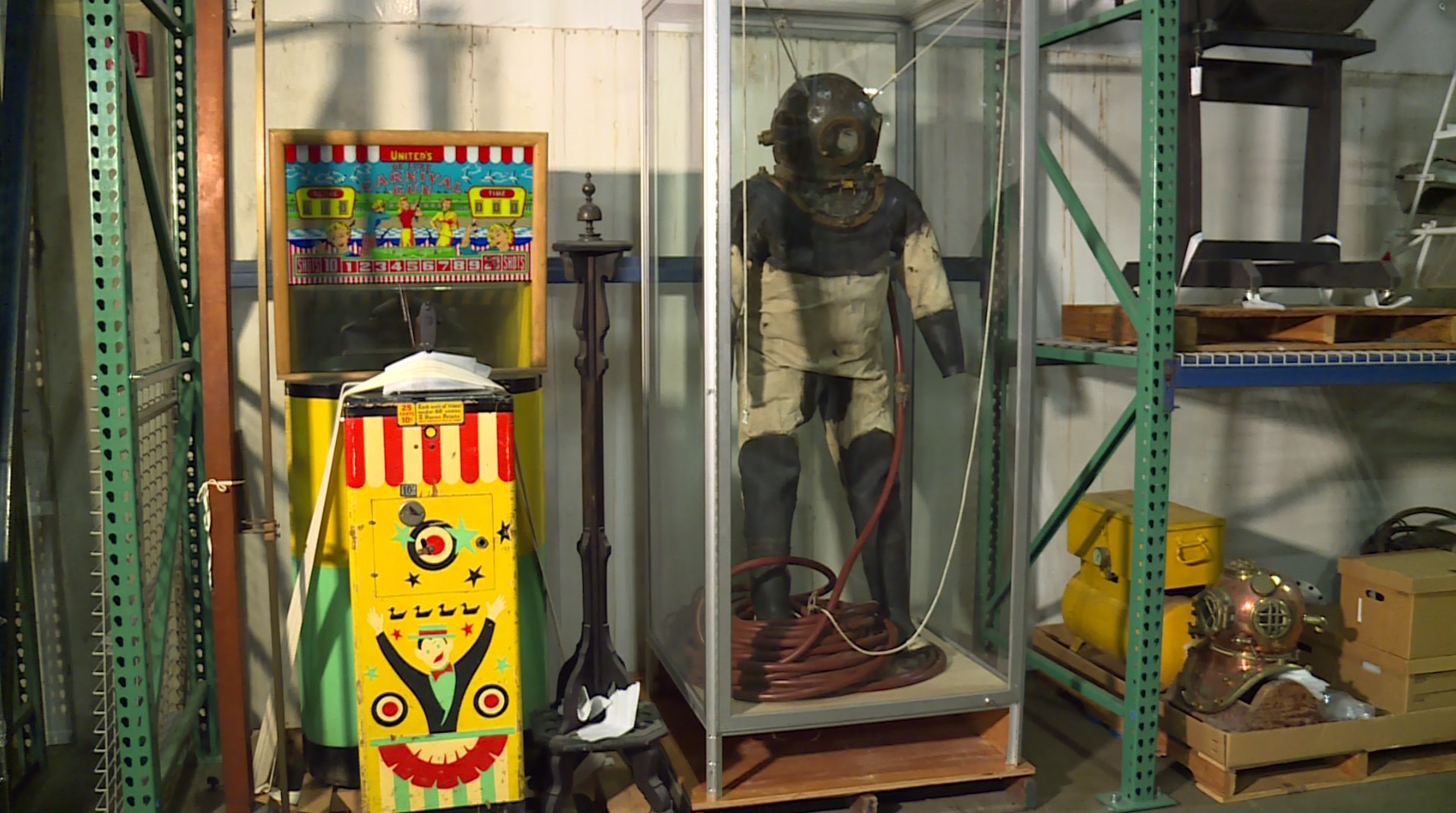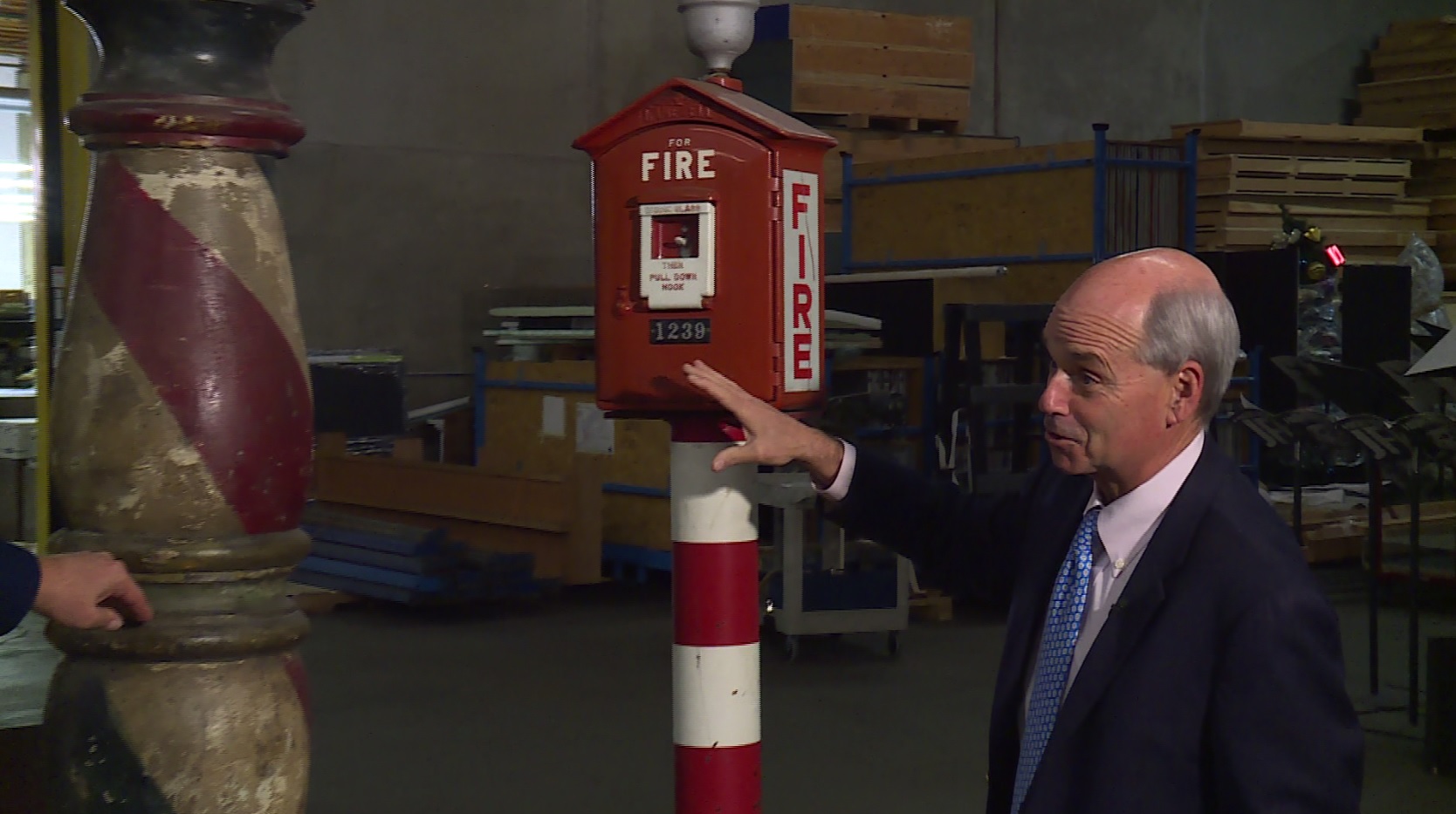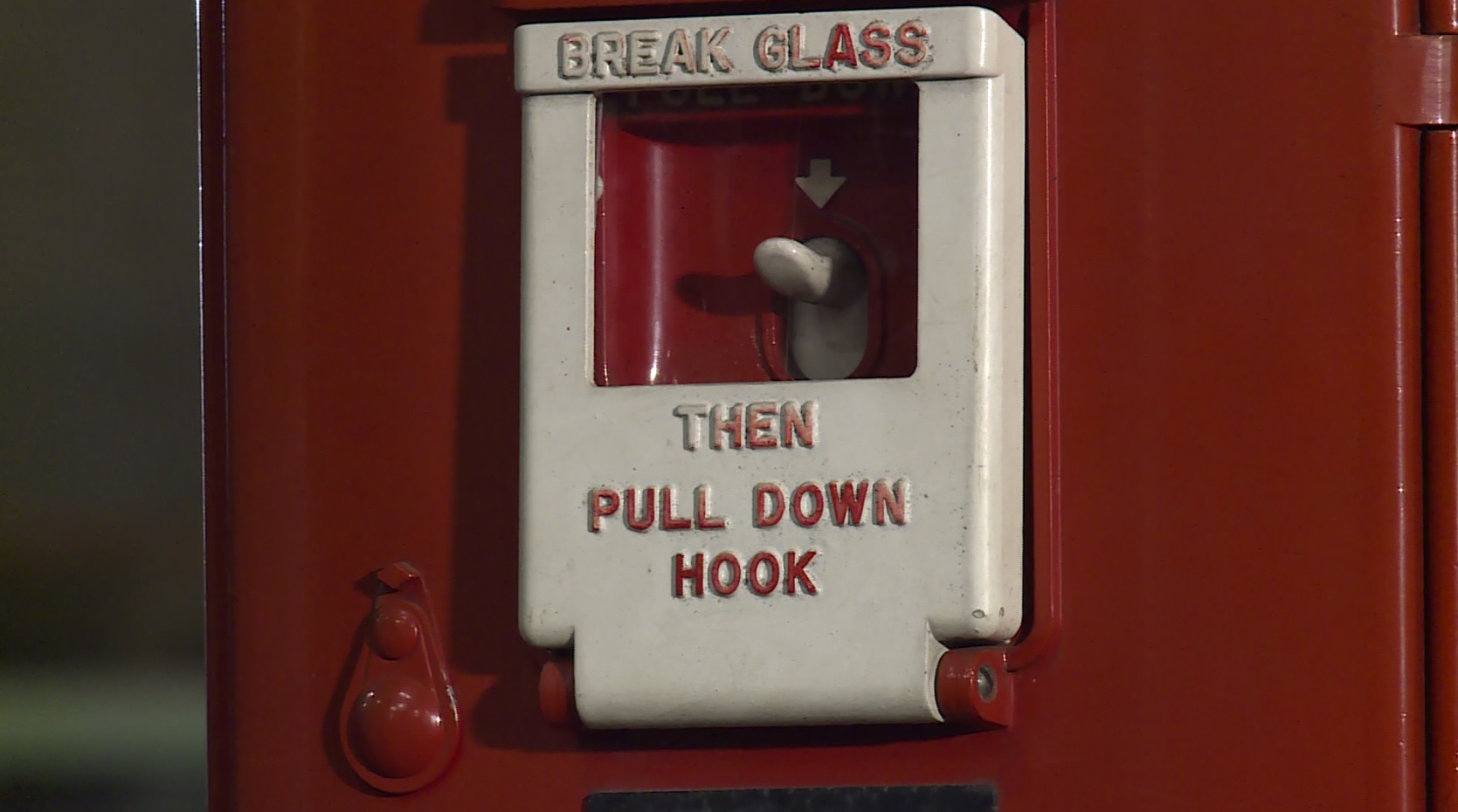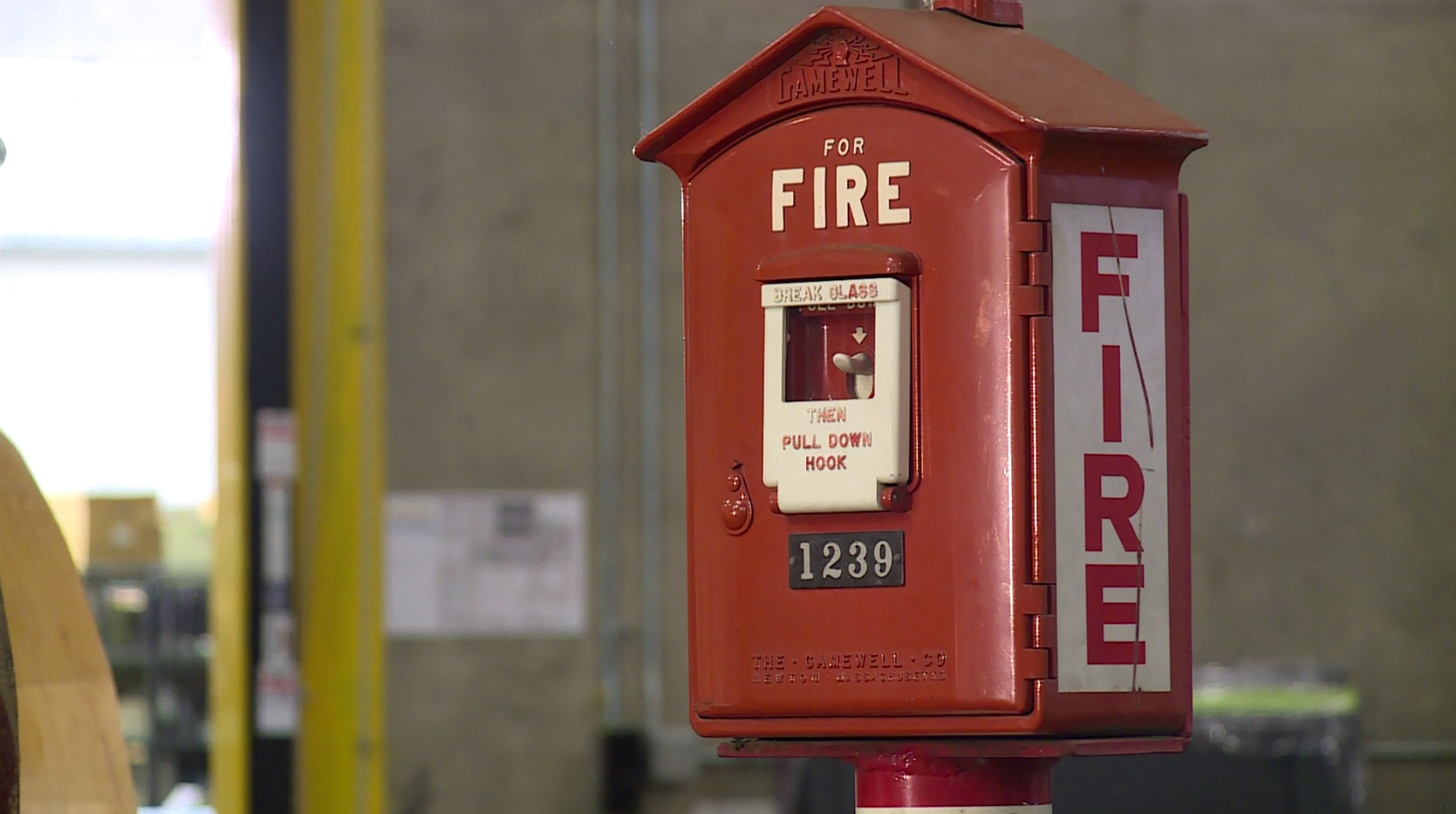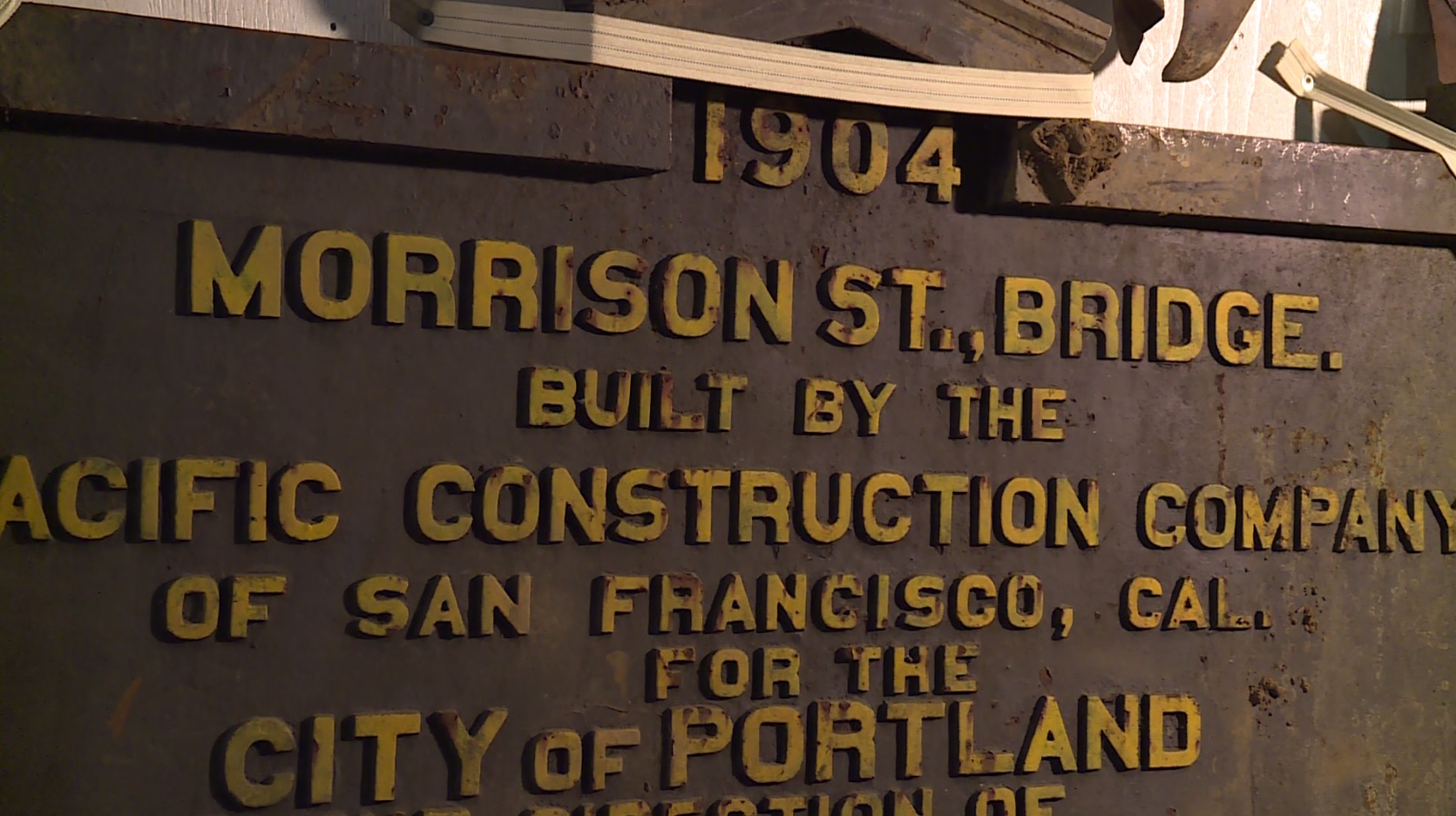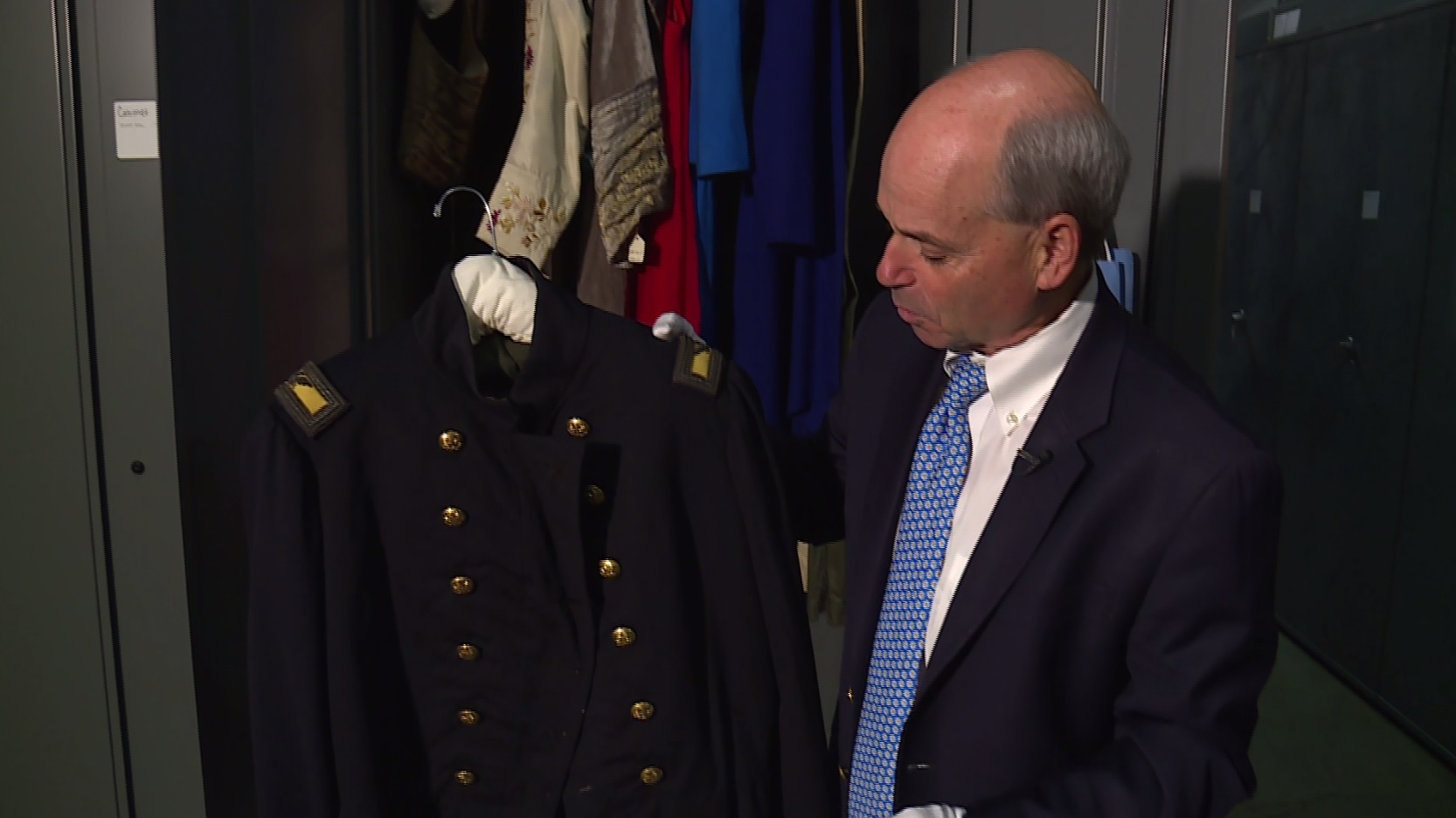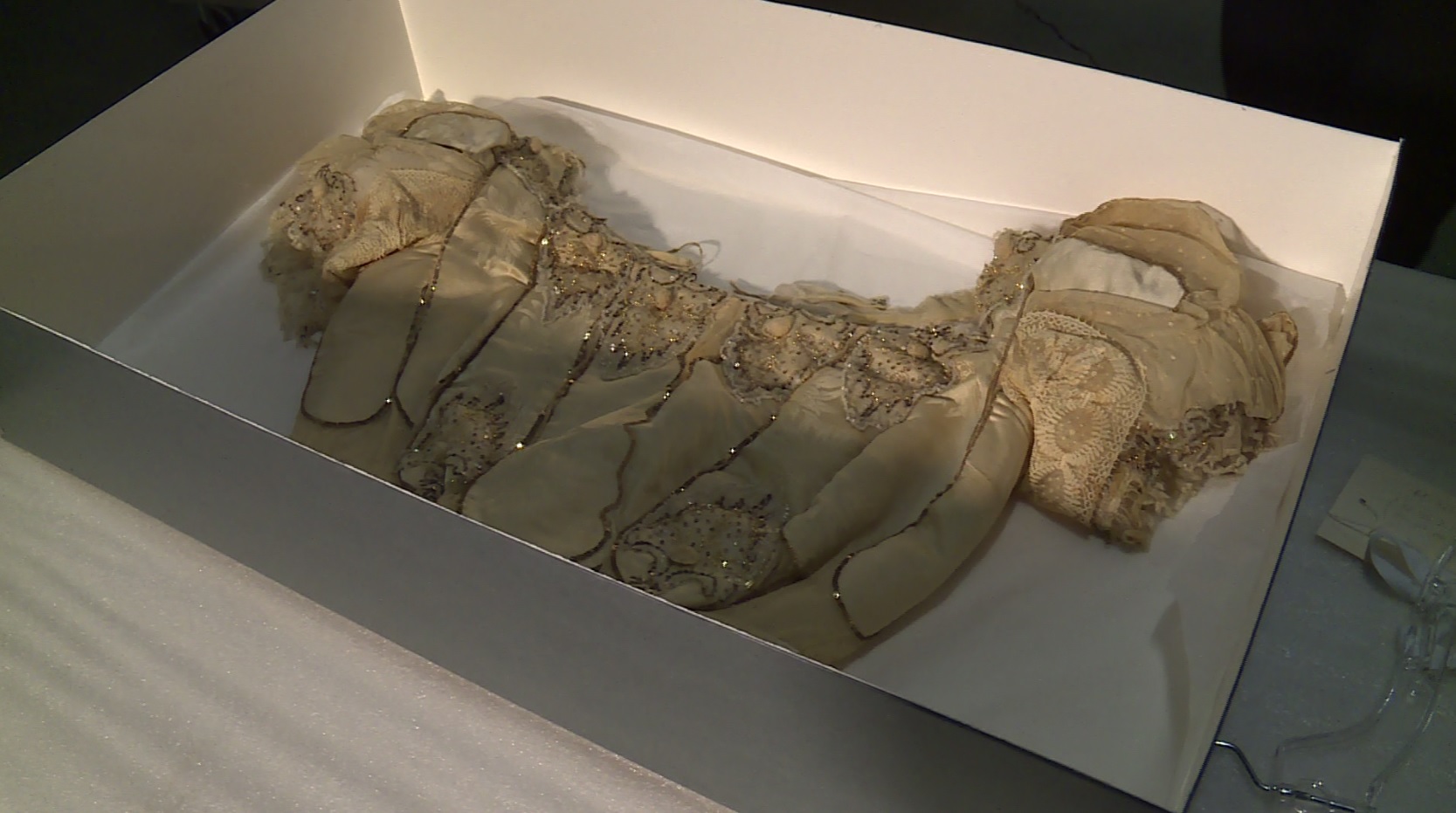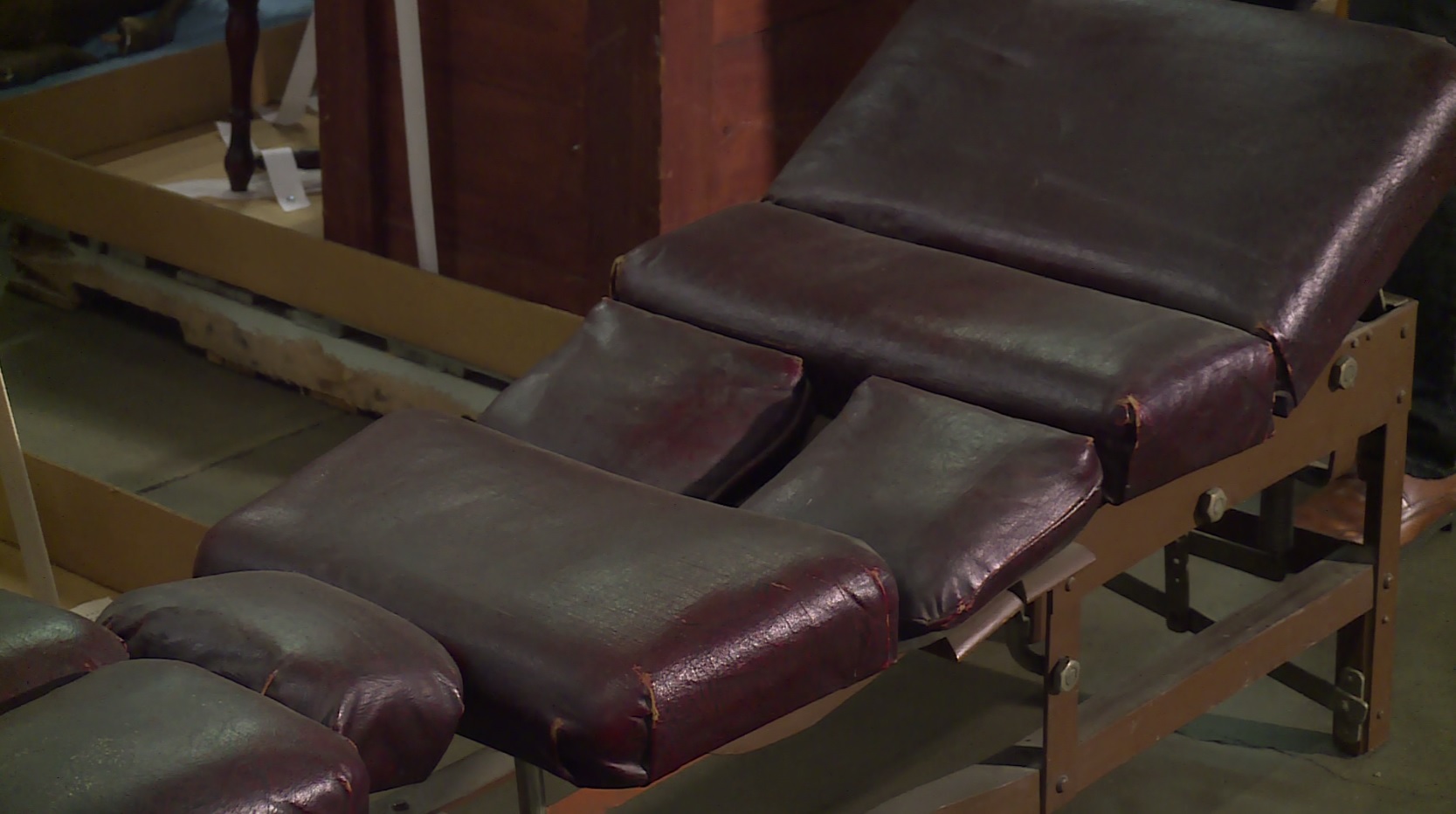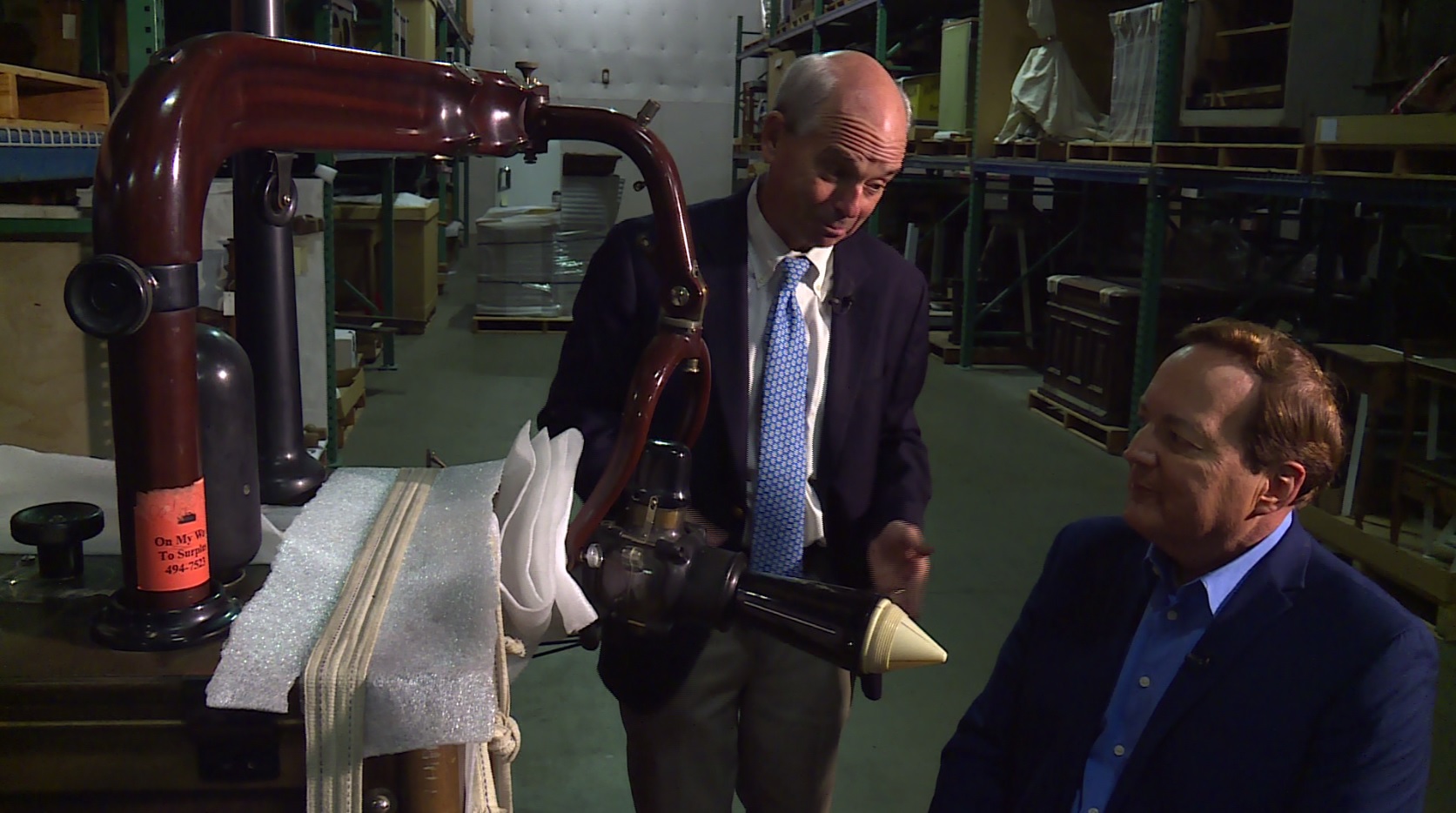PORTLAND, Ore. (KOIN) — From massive items to small — the things in the Oregon Historical Society’s vault tell a story.
“We’ve got to preserve history, show future generations what past generations did, collected, how they lived, what they saved, what was important to them,” OHS director Kerry Tymchuk said. “So we’ve got a little bit of everything here.”
“When the Hawthorn Bridge opens, there’s all sorts of buzzers and whistles and electronic beeps to warn people that the bridge is opening,” Tymchuk said. “Back before all that was invented, there was a bell and someone would ring that bell whenever the Hawthorn Bridge, the drawbridge, was opening.”
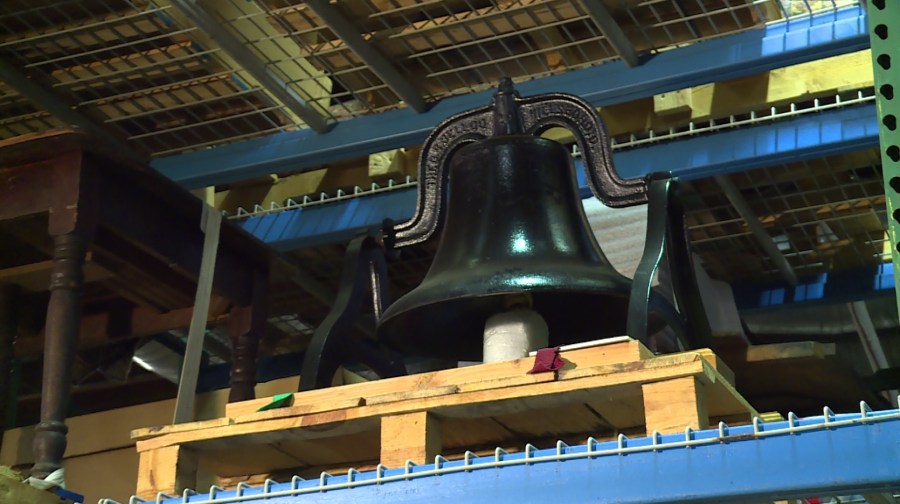
Another historic bridge artifact is the plaque commemorating the original Morrison Bridge.

“You know, history is not just what happened hundreds of years ago,” Tymchuk said. “It’s also what happened five years ago, ten years ago and this would be a recent example of a TriMet ticket machine. Already you know it’s been replaced by a new generation of much more high-tech machines.”
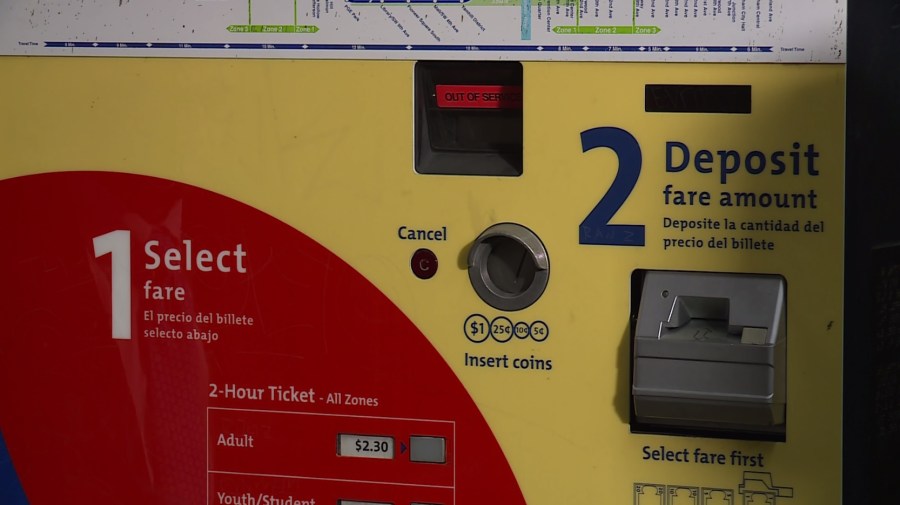
“This was at Portland State University, where if you saw a fire or something smoking, you would pull this down and ring the alarm,” Timchuk said.

If you had a toothache — dental X-ray machines could take a look.
“This is one of the earlier dental X-ray machines, dates back to the 1920s and was used here at a dental office in Oregon,” Tymchuk said. “But you’re right, it looks like torture equipment.”
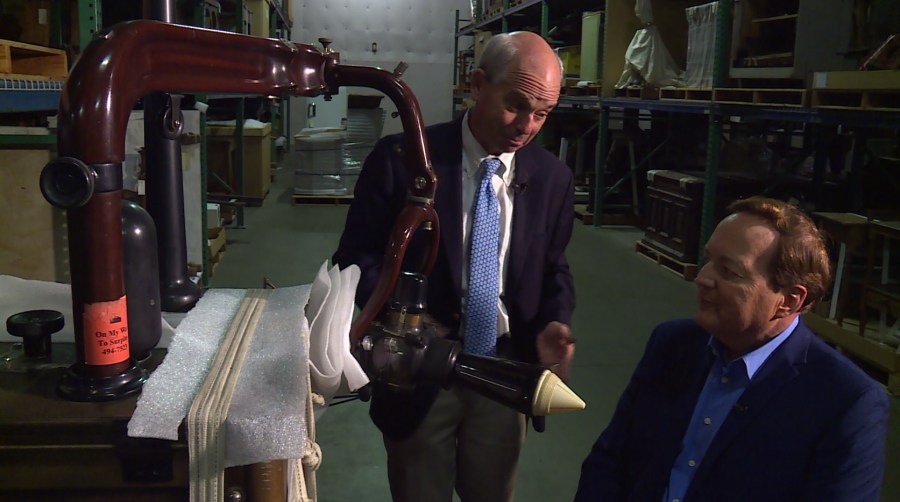
The vault has other medical equipment too — like a chiropractic chair used by the first licensed woman chiropractor in Oregon.

There’s also a strange machine that doesn’t have any medical purpose at all.
“It’s a strange item and it’s called a Happiness Machine,” Tymchuk said. “It was used by a fellow named Paul Weinheimer, who used it to perform around Portland as a one-man band.”
With bells, horns and a piano, he would entertain adults and children.
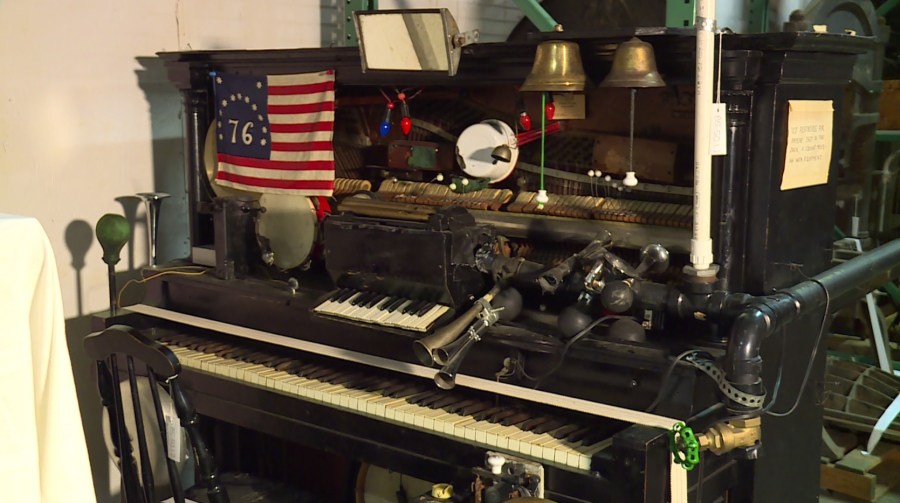
Some of the items in the vault must be treated with great care.
“We have a phenomenal textile collection,” Tymchuk said. “The proper care for these items ist hat they not be touched by human skin with the oil and dirt and grime that are on a normal hand, so I put my gloves on here.”
Among the clothing items is an outfit dating back to the Civil War that was owned and worn by Colonel Thomas Cornelius, the namesake of the city of Cornelius, Oregon.
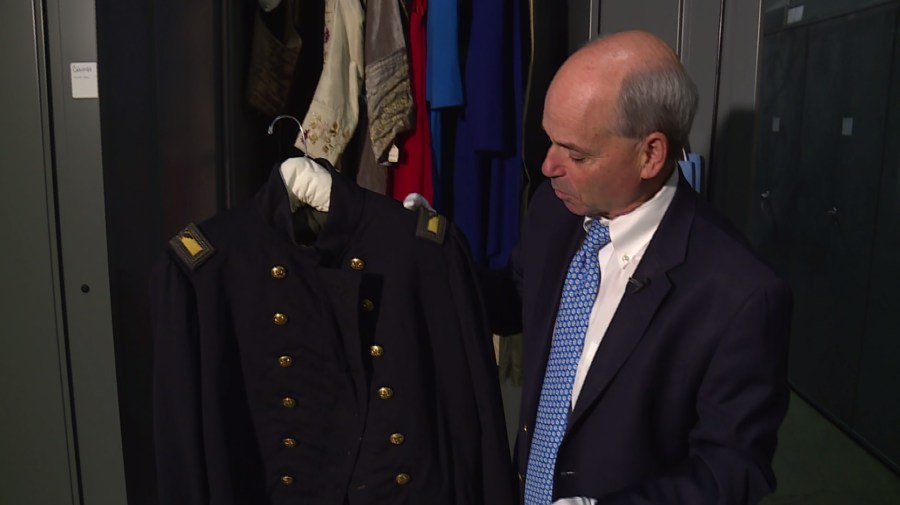
A few more recent additions to the collection include the dress Gov. Barbara Roberts wore when she was sworn in as Oregon’s first woman governor.
They also have a pair of jeans Gov. Tom McCall wore.
The vault also houses a priceless collection of Haut Couture dresses made by Mae and Ann Shogren. They ran a business in downtown Portland that was progressive in the 1920s by employing and offering health insurance to women.
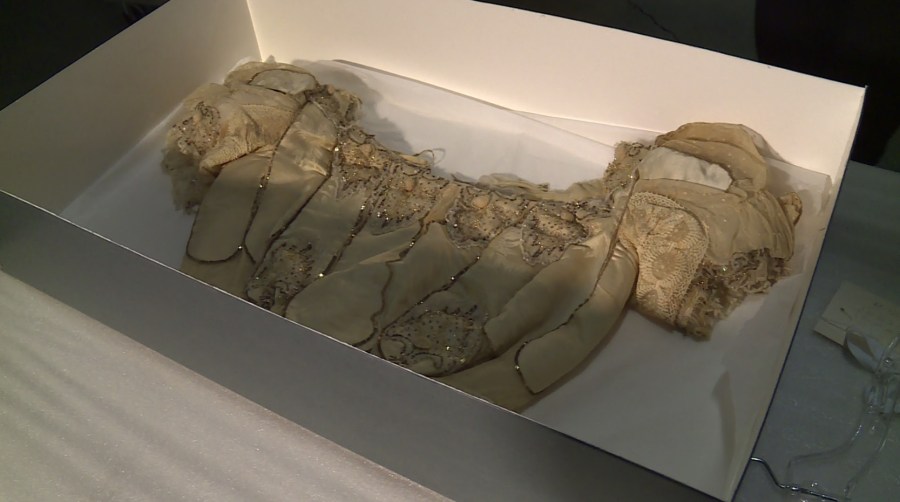
One of their dresses was made for their niece when she graduated from the University of Oregon.
“I like the personal touch about it,” collections manager Nicole Yashuhara said. “Most of their dresses cost a few hundred dollars back then, which would be a few thousand dollars today.”
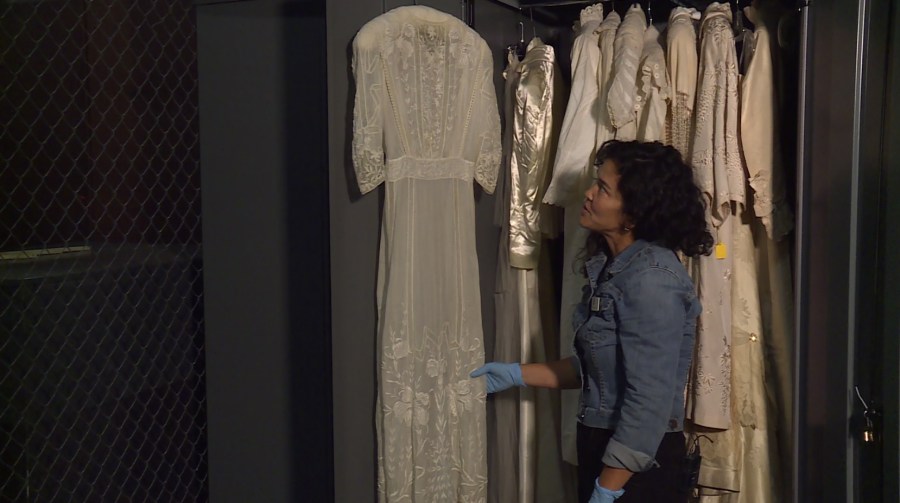
A Portland man named Harold Maiken was one of the first to get involved in underwater photography. His diving suit and equipment were used during the Vanport Flood in 1948 to look for victims and underwater damage.
